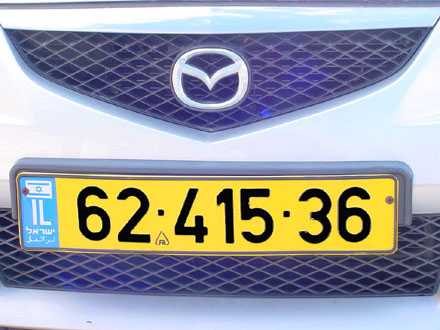Sometimes, this did in fact work. Japan is now a stable, democratic country, after centuries of imperial rule. But, in more recent history, this effort has backfired, and even has served to bolster those who wish to do the United States harm.
As we've witnessed in recent years, giving people the right to choose their government does not guarantee that they'll choose a liberal government that guarantees rights and freedoms. In fact, when given the right to choose, citizens of Egypt chose the Muslim Brotherhood, while their cousins in Gaza chose Hamas - sister organizations dedicated to the promotion of radical Islam. In fact, rather than leading to "liberal democracies", free elections in Muslim countries have resulted in "illiberal democracies" whose governments then proudly promote their legitimacy, as they were indeed freely elected.
None of this should come as any surprise to those who study Chumash with Ha'amek Davar, the commentary of Netziv. While following the will of the people seems inherently sensible, Netziv, noting a seeming self-contradiction in the Torah points out an obvious truth: what's seems sensible, isn't always the best choice.
Moshe instructs the nation that when the enter into the Chosen Land, they must appoint a king to lead them:
Netziv notes that rather than just instructing the people to appoint a king, that appointment can only come should the nation desire a king - when the people say, "I will set a king over me." It seems that the Torah only commands the nation to appoint a king when they look at the nations around them, and wish to have a similar form of leadership. Yet, this condition seems to contradict the apparent commandment to appoint a king. In fact, Chazal do indeed interpret these verses as a commandment - a mitzvah - to appoint a king. So, must we appoint a king or not? Is it a mitzvah or not? According to Netziv, it depends. He writes:כִּי-תָבֹא אֶל-הָאָרֶץ, אֲשֶׁר יְהוָה אֱלֹהֶיךָ נֹתֵן לָךְ, וִירִשְׁתָּהּ, וְיָשַׁבְתָּה בָּהּ; וְאָמַרְתָּ, אָשִׂימָה עָלַי מֶלֶךְ, כְּכָל-הַגּוֹיִם, אֲשֶׁר סְבִיבֹתָי. שׂוֹם תָּשִׂים עָלֶיךָ מֶלֶךְ, אֲשֶׁר יִבְחַר יְהוָה אֱלֹהֶיךָ בּוֹ: מִקֶּרֶב אַחֶיךָ, תָּשִׂים עָלֶיךָ מֶלֶךְ--לֹא תוּכַל לָתֵת עָלֶיךָ אִישׁ נָכְרִי, אֲשֶׁר לֹא-אָחִיךָ הוּא.When thou art come unto the land which the LORD thy God giveth thee, and shalt possess it, and shalt dwell therein; and shalt say: 'I will set a king over me, like all the nations that are round about me'; thou shalt in any wise set him king over thee, whom the LORD thy God shall choose; one from among thy brethren shalt thou set king over thee; thou mayest not put a foreigner over thee, who is not thy brother. (Devarim 17:15-16)
ונראה דמשום דהנהגת המדינה משתנית אם מתנהגת ע"פ דעת מלוכה או ע"פ דעת העם ונבחריהם. ויש מדינה שאינה יכולה לסבול דעת מלוכה ויש מדינה שבלא מלך הרי היא כספינה בלי קברניט, ודבר זה אי אפשר לעשות ע"פ הכרח מצות עשה, שהרי בענין השייך להנהגת הכלל נוגע לסכנת נפשות שדוחה מצות עשה. משום הכי אי אפשר לצוות בהחלט למנות מלך כל זמן שלא עלה בהסכמת העם לסבול עול מלך ע"פ שרואים מדינות אשר סביבותיהם מתנהגים בסדר יותר נכון או אז מצות עשה לסנהדרין למנות מלך.It seems [that the verse is ambiguous] because the leadership of the State is varied - whether it be a leadership of monarchy, or a leadership based upon the will of the people and their chosen [leaders]. There may be a state that cannot suffer monarchy, while another state without a king is like a boat without a captain. This matter cannot be enforced through a positive commandment, for matters related to the public can be issues of life and death, and would therefore supersede a positive commandment. For this reason, it is impossible to issue an absolute command to appoint a king, as long as the public has not agreed to suffer the yoke of a king, having seen the countries surrounding them functioning with greater order [due to their king]. Only then is it a positive commandment for the Sanhedrin to appoint a king.
Some nations - at some times - cannot suffer a monarchy, while others (or even that same country, in a different era), would literally disintegrate without the firm guidance of a powerful leader. It interesting to note that the Obama Administration seems to have come to this very conclusion (a bit late, in my opinion), drastically cutting funding to promote democracy in the Middle East.
Look what happened to Egypt (and Tunisia and Gaza - and probably Syria as well): While democracy sounds good, it seems clear in retrospect that only the firm grip of a powerful leader kept those countries from destroying themselves, and those around them.
Is Democracy the best choice? It can be. But, Netziv reminds us that it's only a good choice of government when the nations themselves are ready for it.




